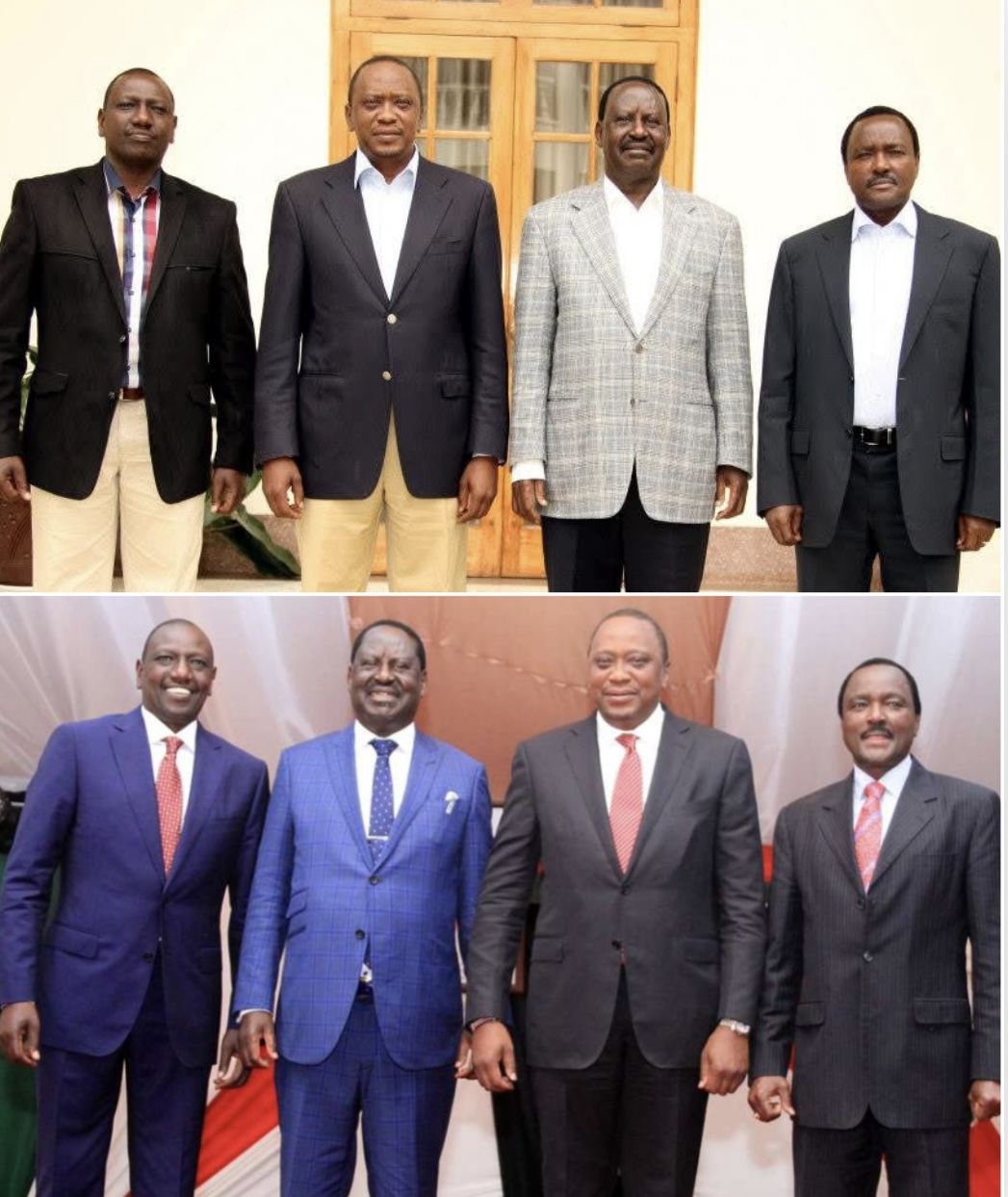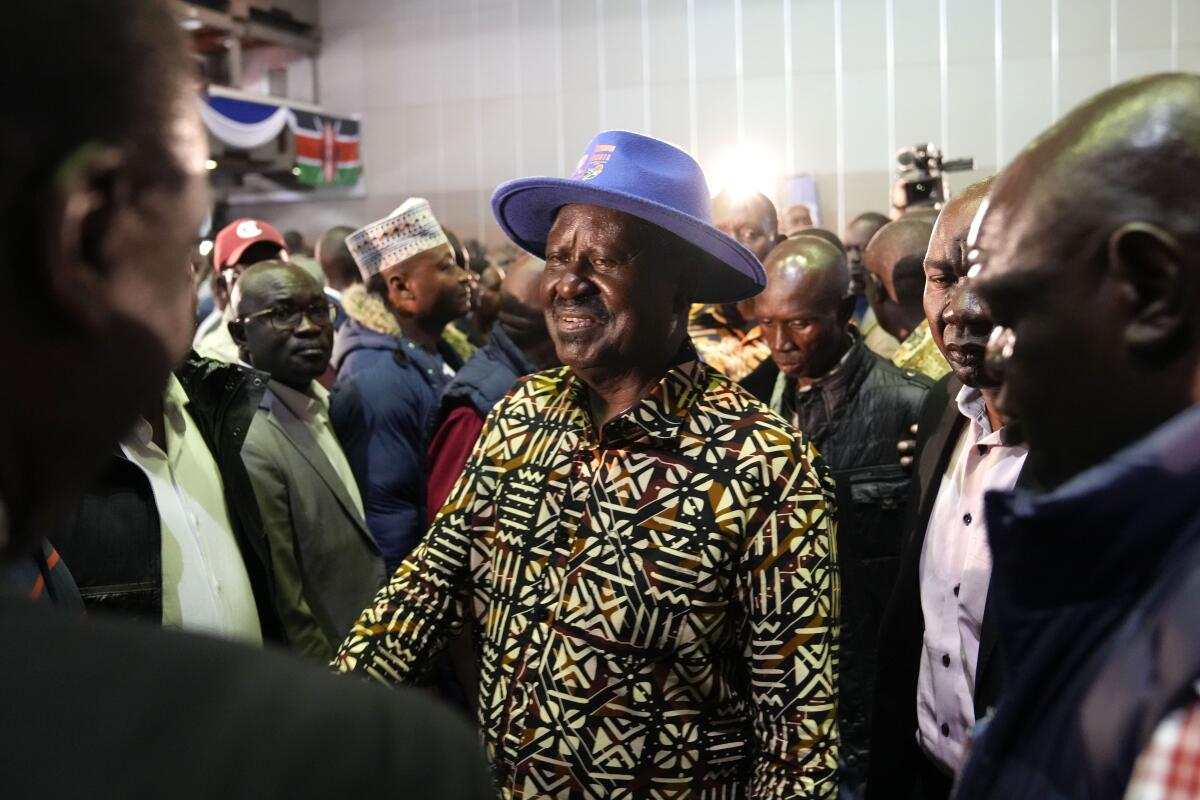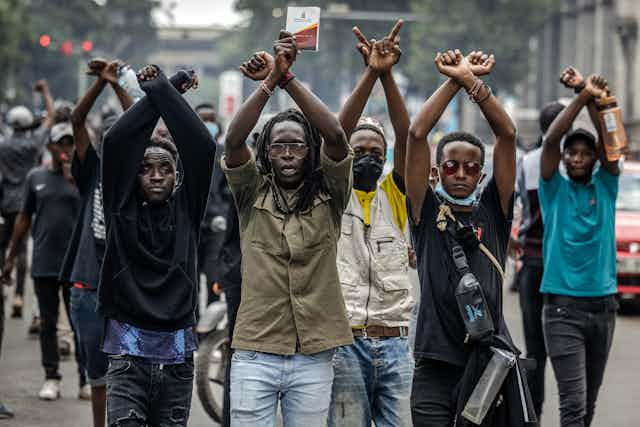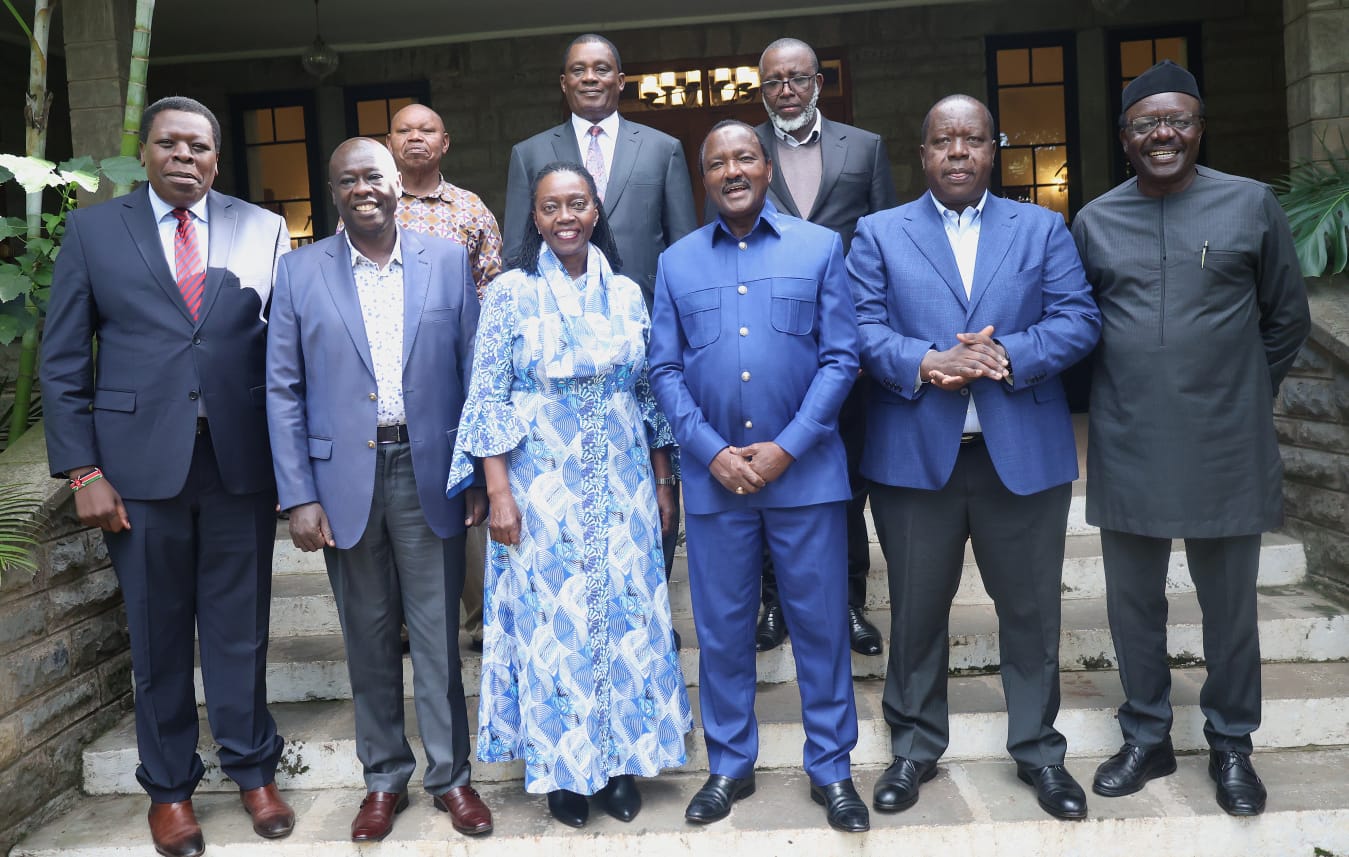As the sun ascends over Kenya’s verdant highlands and sprawling savannas, a seismic shift stirs in the nation’s collective consciousness – a resolute repudiation of the calcified paradigms of tribalism and political chicanery that have long stifled our boundless potential. The recent defeat of Raila Odinga’s bid for the African Union (AU) chairmanship in February 2025, far from a mere electoral loss, symbolizes a broader rejection of an entrenched political class that has masqueraded as liberators while perpetuating division and exploitation.
Figures like Odinga, William Ruto, Kalonzo Musyoka, Rigathi Gachagua, Fred Matiang’i, and Uhuru Kenyatta have long wielded tribal identities as political currency, entrenching a neocolonial system that thrives on fracturing the nation’s soul. Yet, the Kenyan masses, once ensnared by these demagogues’ hollow rhetoric, are awakening, heralding a luminous dawn of unity, shared prosperity, and national liberation that transcends ethnic boundaries and consigns these political titans to the twilight of their relevance.

PROLIFIC DEMAGOGUES & DESPOTS: William Ruto, Uhuru Kenyatta, Raila Odinga & Kalonzo Musyoka
The Context of a Fractured Legacy
Kenya’s post-independence history is a tapestry woven with threads of promise and betrayal. Emerging from British colonial rule in 1963, the nation bore the scars of the Mau Mau uprising – a rebellion rooted in the quest for land and freedom – only to see its ideals co-opted by a political elite. Jomo Kenyatta, the nation’s first president, set a precedent for ethnic favoritism, channeling land and wealth to his Kikuyu elites while marginalizing other communities and Mau Mau veterans. This pattern of tribalism as political strategy persisted through Daniel arap Moi’s 24-year presidency, which entrenched patronage networks favoring the Kalenjin elite and suppressed dissent through authoritarianism.
The 2002 election of Mwai Kibaki and the subsequent 2007/2008 post-election violence, which claimed over 1,300 lives, exposed the fragility of Kenya’s ethnic mosaic, manipulated by leaders to secure power. Raila Odinga, a prominent figure since the 1980s, has positioned himself as a reformist, yet his alliances with Moi, Kibaki, and later Uhuru Kenyatta reveal a pragmatism of collaboration with oppressive regimes.
The African Union chairmanship bid, contested in Addis Ababa in early 2025, was Odinga’s latest attempt to cement his legacy as a pan-Africanist. The AU, established in 2002 to foster continental unity and development, has often been criticized as a bureaucratic enclave serving elite interests rather than the African masses. Odinga’s campaign, backed by President Ruto’s government, was framed as a chance to elevate Kenya’s global stature, but his loss to Djibouti’s Mahamoud Ali Youssouf sparked jubilation in the entire country.
As one young official of the Communist Party of Kenya said, “We are very happy that you lost, in fact, die without ever having achieved anything significant because your only contribution to the struggle has been to collaborate with every single corrupt regime.” This sentiment reflects a growing disillusionment with leaders who cloak themselves in pan-Africanist garb while failing to challenge the neocolonial structures that perpetuate inequality.

SPENT CARTRIDGE: ODM Leader Raila Odinga has outlived his usefulness, his political career causing more harm than good to Kenya
The Machinery of Tribalism and Its Discontents
The old era, defined by the machinations of tribal kingpins, is a relic of a bygone age – an age where power was amassed through the cynical manipulation of ethnic loyalties. Raila Odinga, William Ruto, Kalonzo Musyoka, Rigathi Gachagua, Fred Matiang’i, and Uhuru Kenyatta have each, in their turn, stoked the fires of tribalism, rallying ethnic blocs to secure their political fiefdoms while the masses languished in the margins. Odinga, a Luo, has long leveraged his community’s grievances to maintain relevance, yet his “handshake” with Uhuru Kenyatta in 2018, which quelled post-election tensions, is seen by critics as a betrayal of his base for political expediency. Ruto, a Kalenjin, and Gachagua, a Kikuyu, have similarly mobilized their ethnic constituencies, with Gachagua’s fiery rhetoric in 2022–2023 stoking divisive Kikuyu nationalism. Musyoka, a Kamba, and Matiang’i, a Kisii, have navigated the same ethnic chessboard, while Uhuru Kenyatta’s presidency (2013-2022) perpetuated Kikuyu rhetoric largely geared to enriching his family enterprise, deepening interethnic mistrust.

Kenyan youth are saying ENOUGH IS ENOUGH! They refuse to be used as canon fodder in the war of attrition anymore
As young voices of Kenya proclaim, “We are asking Kenyans to not be led astray by leaders who cloak themselves in counterfeit suits and call themselves pan-Africanists.” This clarion call unmasks the hypocrisy of a political class that accuses its people of tribalism while orchestrating the very divisions they decry. The Kenyan people are not inherently tribal; they are tribalized – by a predatory elite that thrives on fracturing the nation’s soul for personal gain. Kenyan youth, such as those decrying the construct of “tribal kingpins,” highlight how leaders like Ruto, Gachagua and Odinga strategically secure ethnic support to consolidate power, perpetuating a cycle where ethnic identity trumps national unity.
This manipulation is rooted in a neocolonial framework inherited from British divide-and-rule tactics, which pitted ethnic groups against each other to maintain control. The colonial legacy of indirect rule, which empowered compliant chiefs, persists in modern Kenya’s patronage networks, where loyalty to a leader’s ethnic base ensures access to resources.
A Radiant Vision of Unity

THE FUTURE IS HERE: Young Kenyans have transcended the neocolonial divisions along tribal lines and will be taking charge of the destiny very soon
Yet, from the ashes of this divisive legacy, a radiant vision emerges – a Kenya unshackled from the parochial confines of ethnic arithmetic. The masses, awakened to the mendacity of their leaders, are dismantling the neocolonial scaffolding that has kept them bound. The protests of 2024, particularly among Kenya’s youth, signal a rejection of the status quo, with demands for accountability transcending tribal lines. Movements like the Gen-Z-led protests against the Finance Bill 2024 embody this shift, uniting Kikuyu, Luo, Luhya, Kamba, Kalenjin, and others in a shared cry for justice. As young Kenyans continuously assert, “We understand that the cause of liberation for the Kenyan peoples is beyond the ethnic configurations that they want to limit us in.” This is a revolution of consciousness, a collective epiphany that the cause of freedom is universal, unyoked from the petty calculations of tribal kingpins.
The neocolonial system, sustained by global financial institutions and local elites, has enriched a select few while impoverishing the majority. Kenya’s economy, despite periods of growth, remains plagued by inequality, with a 2023 Gini coefficient of 0.39 reflecting stark disparities. Land, the heart of Kenya’s liberation struggle, remains concentrated among elites, with the Kenyatta family alone owning vast tracts estimated at over 500,000 acres. The World Bank and IMF, through structural adjustment programs in the 1980s and 1990s, entrenched Kenya’s dependence on foreign capital, mirroring the economic hitman tactics that critics attribute to leaders like Jomo Kenyatta. Today’s youth, armed with digital awareness, are exposing these truths, declaring, “We, the masses, are waking up to the lies that have been perpetuated through the neocolonial system, and we are saying no more.”
A Call to the Old Guard: Your Time Is Over
The time has come for the old generation of despots and demagogues to retreat to the twilight of their irrelevance. Raila, Ruto, Gachagua, Musyoka, Matiang’i, Uhuru – your era of sowing discord and reaping power is over. Your counterfeit suits of pan-Africanism and reform have frayed, exposing the venality beneath. The Kenyan people, vibrant and resolute, are forging a new covenant – one where prosperity is not hoarded by a rapacious elite but shared among all who call this land home. This is the dawn of a Kenya where every citizen, from the bustling streets of Nairobi’s Pipeline Estate to the pastoral expanses of Turkana, stands as an equal stakeholder in the nation’s promise. The AU chairmanship, a gilded distraction, held no allure for a people demanding substantive change at home. “National liberation is coming for all Kenyans and will not be confined to the borders of Kenya.”

POWER IS NOT GIVEN – IT IS TAKEN: We are now serving notice to the old generation that your time is up.
This new dawn envisions a Kenya where governance is a tapestry of inclusivity, woven from the dreams of every community. It is a nation where land reform restores dignity to the dispossessed, where economic policies prioritize local empowerment over foreign interests, and where leaders are held accountable not by their ethnic affiliations but by their service to the collective good. The youth, wielding the tools of technology and solidarity, are the vanguard of this transformation, rejecting the tribal kingpins who have long held sway.
To the political beasts who have preyed on division: your time is up. Go home. The future belongs to a united Kenya, radiant with hope, unbowed by the ghosts of its colonial past, and boundless in its aspirations for shared prosperity.

